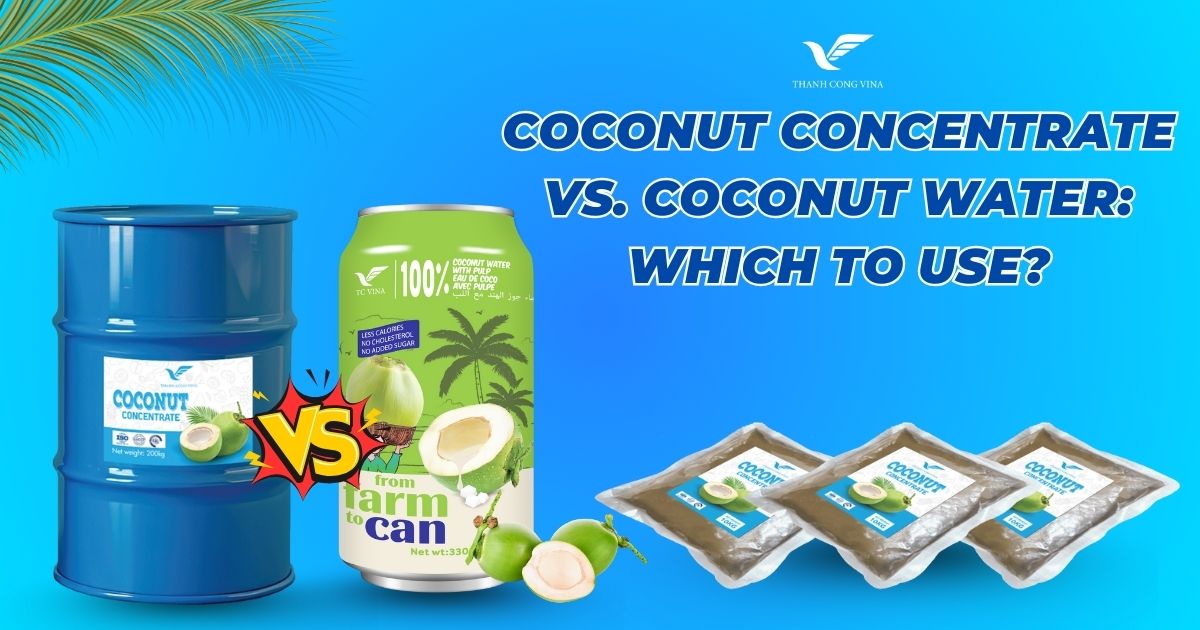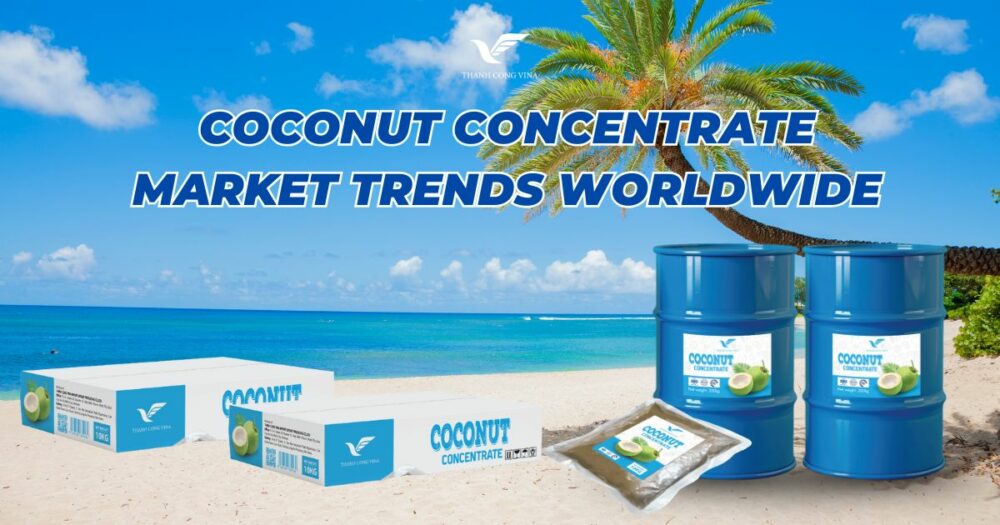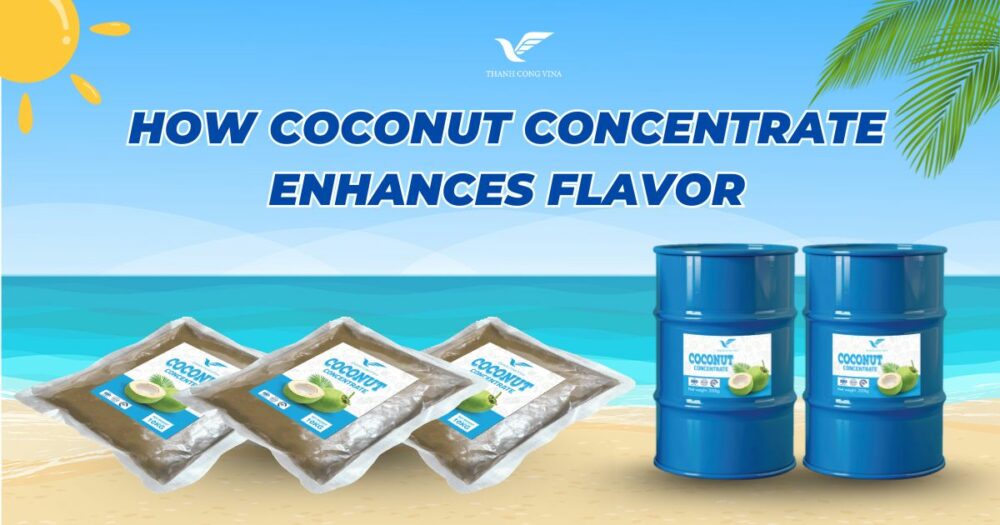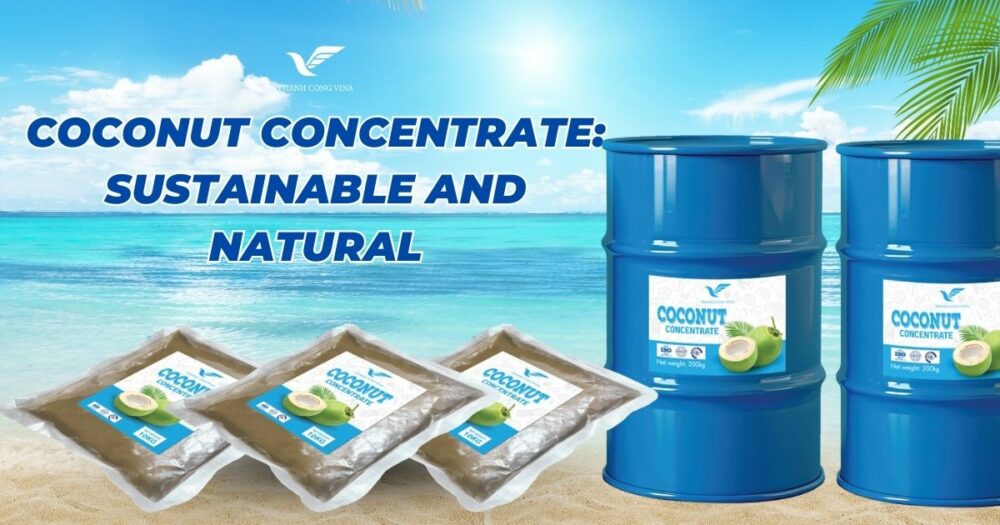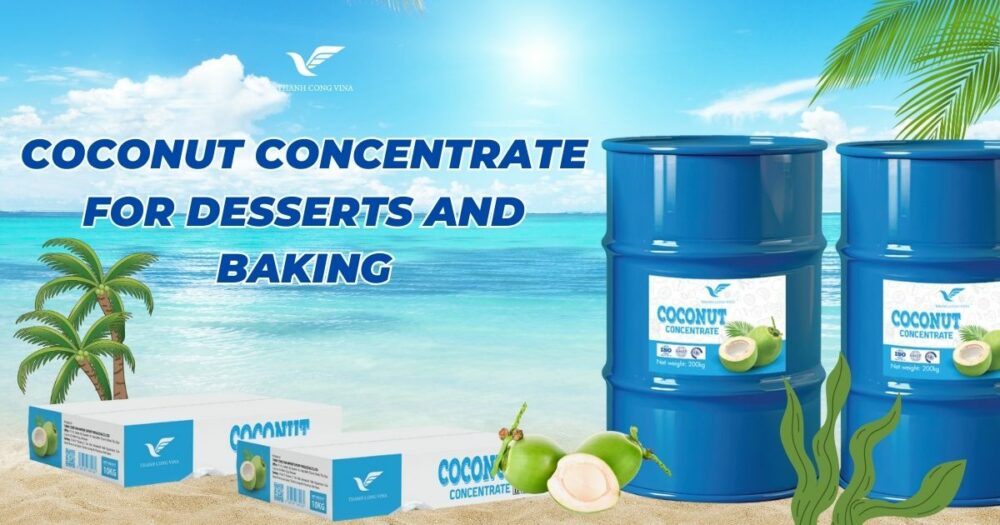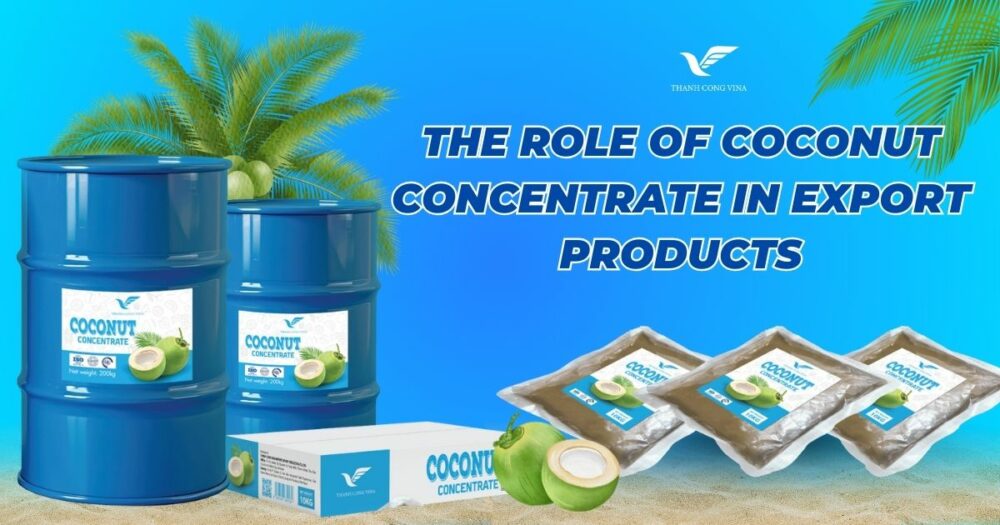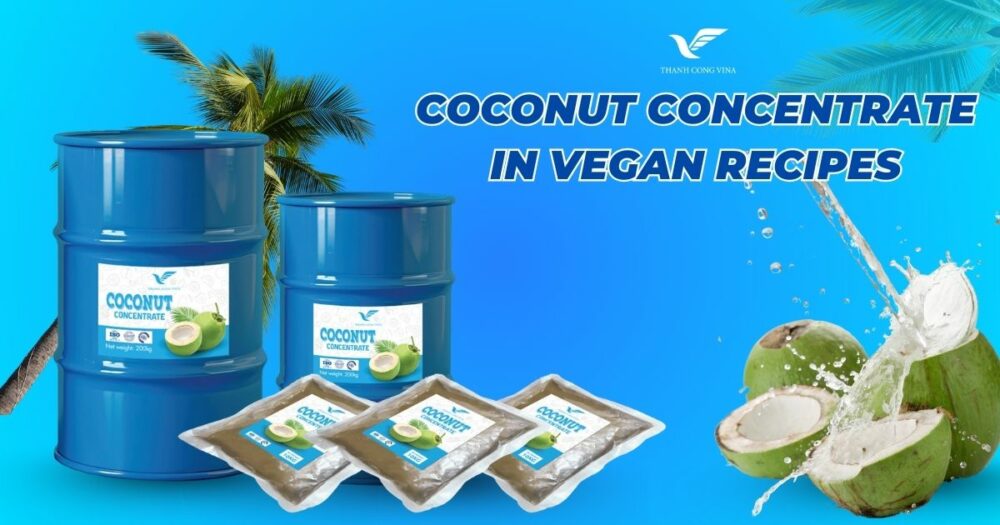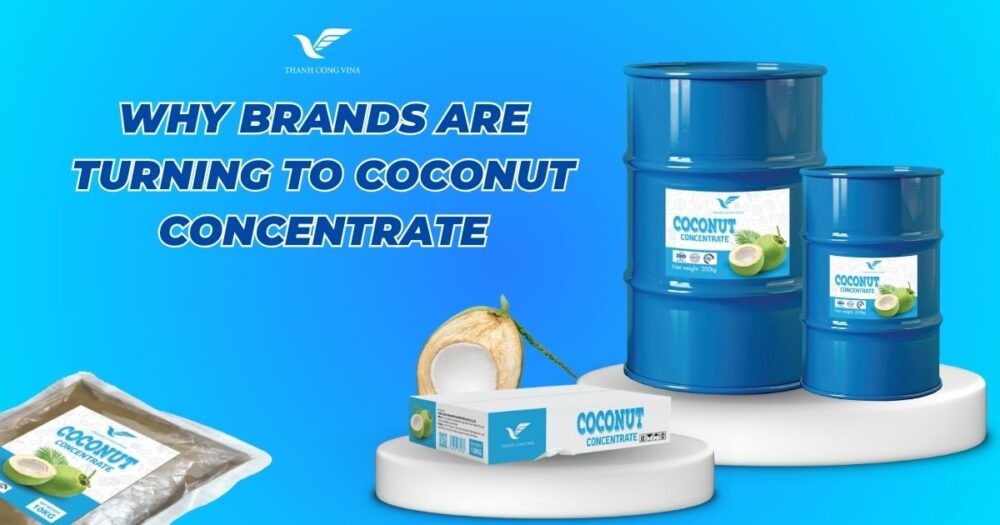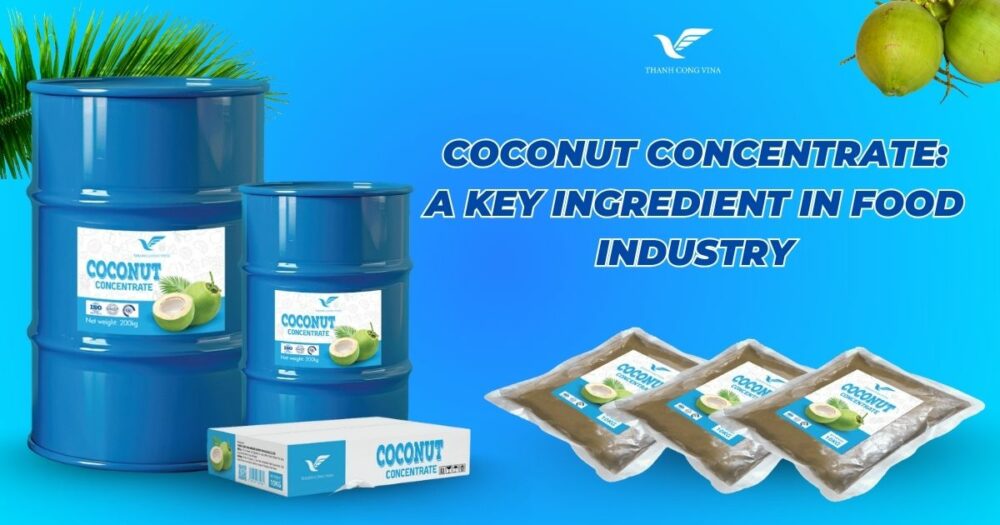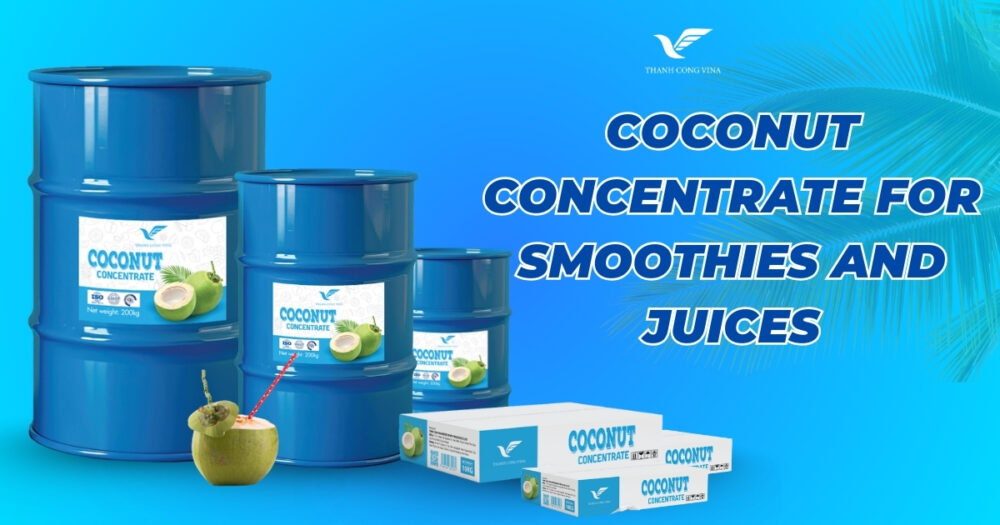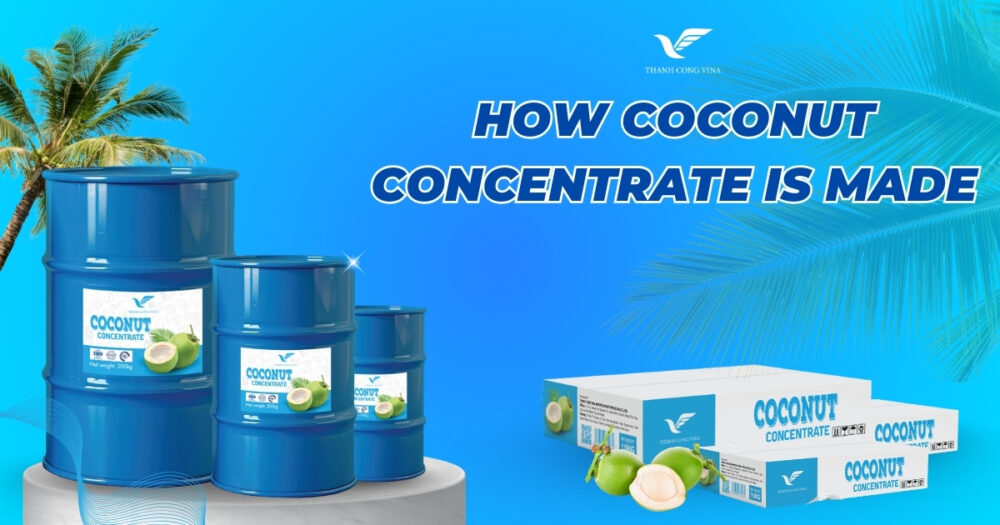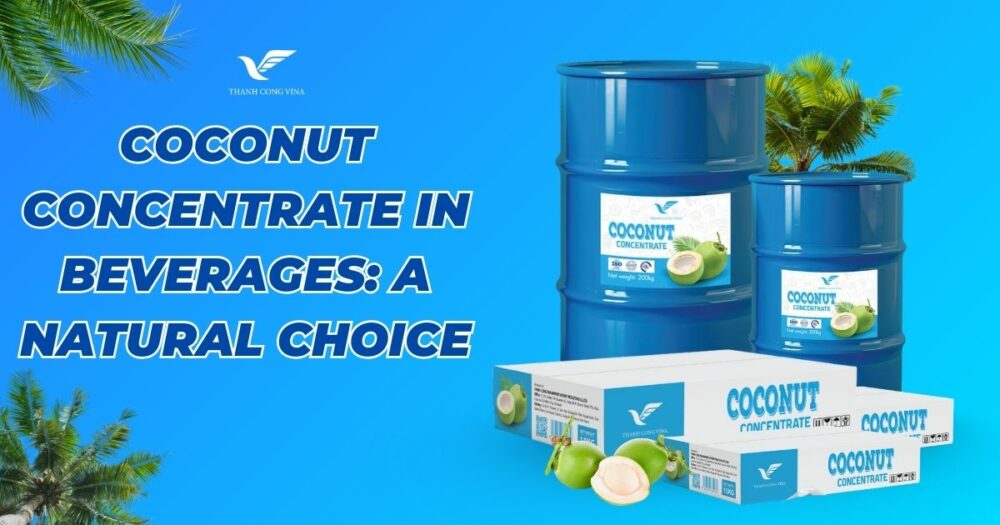Coconuts are among the most versatile fruits in the world, offering countless products that have become staples in modern nutrition, wellness, and culinary industries. Among the most popular coconut-derived beverages are coconut water and coconut concentrate. Both provide hydration and nutrients, but they are not the same. Many consumers are left wondering: when should you choose coconut concentrate, and when is coconut water the better option?
At Thanh Cong Vina IEP CO., LTD, This in-depth guide explores everything you need to know about coconut concentrate and coconut water, their differences, benefits, applications, and how to choose the right one for your needs.
1. Understanding Coconut-Derived Beverages
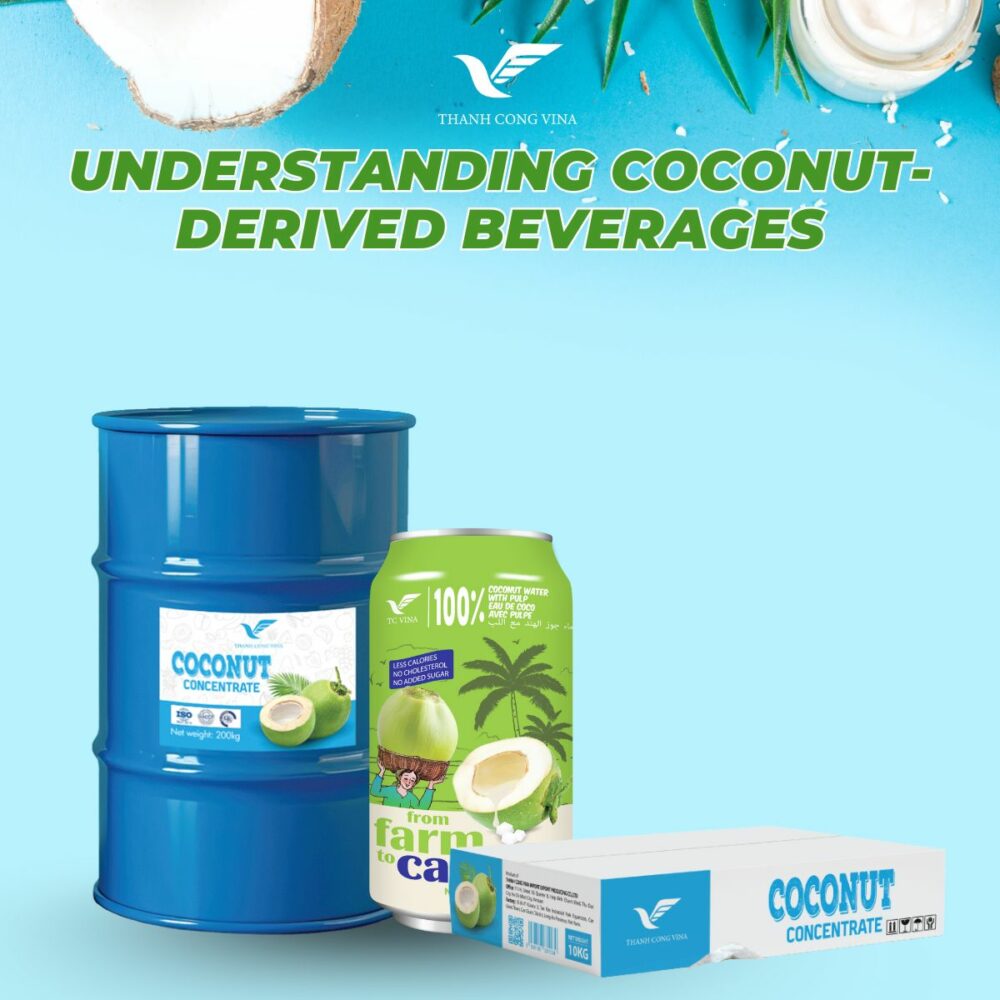
Understanding Coconut-Derived Beverages
The Popularity of Coconut Products
Over the last decade, coconuts have moved from tropical farms into mainstream supermarkets and wellness shops worldwide. Coconut products are now associated with hydration, electrolytes, and plant-based nutrition, making them highly appealing to health-conscious consumers.
What Is Coconut Water?
Coconut water is the clear liquid found naturally inside young, green coconuts. It is a refreshing, slightly sweet beverage known for being low in calories and packed with electrolytes such as potassium, magnesium, and sodium.
What Is Coconut Concentrate?
Coconut concentrate, sometimes called concentrated coconut water, is made by removing much of the water content from coconut water. The result is a thicker, more nutrient-dense liquid that can later be reconstituted with water or used directly in recipes. It is widely used in the beverage industry, as well as in culinary and nutritional applications.
2. Production Process
How Coconut Water Is Harvested
-
Collected directly from young coconuts.
-
Typically consumed fresh or bottled with minimal processing.
-
Pasteurization may be used to extend shelf life.
How Coconut Concentrate Is Made
-
Starts with coconut water.
-
Water is removed through evaporation or vacuum concentration.
-
The final product is thicker and more stable for transport.
-
Can be diluted later to recreate coconut water.
This concentration process allows coconut producers to ship large volumes more efficiently while retaining the original nutrients and flavor.
3. Nutritional Comparison
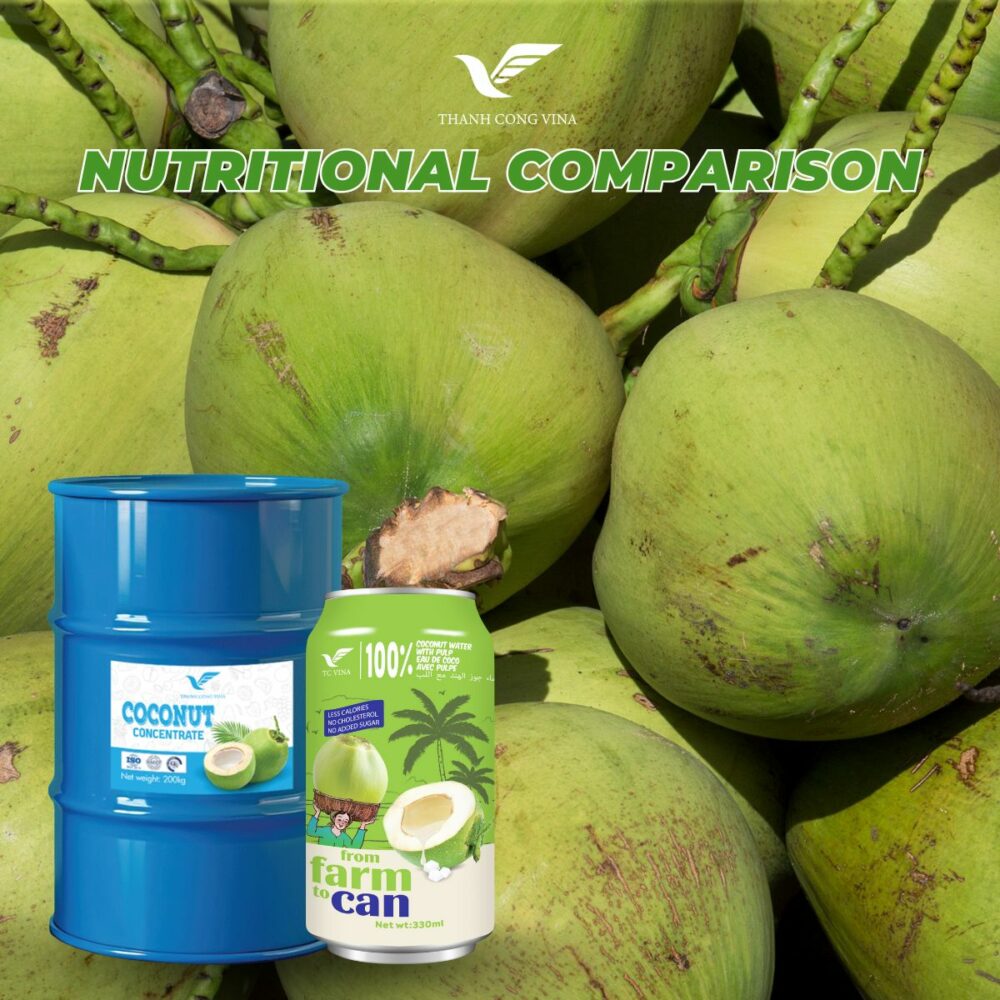
Nutritional Comparison
Nutrients in Coconut Water
-
High in electrolytes (potassium, magnesium, sodium).
-
Low calorie, usually around 40–50 calories per cup.
-
Contains natural sugars for quick energy.
-
Includes trace vitamins and amino acids.
Nutrients in Coconut Concentrate
-
More nutrient-dense due to reduced water content.
-
Higher calorie count per serving (before dilution).
-
Retains electrolytes, minerals, and natural sugars.
-
Can be adjusted when reconstituted to match fresh coconut water.
Key Differences
-
Coconut water: ready-to-drink hydration.
-
Coconut concentrate: versatile, storable, and customizable.
4. Flavor and Texture
Coconut Water
-
Light, refreshing, and slightly sweet.
-
Best consumed chilled for maximum refreshment.
-
Popular among athletes and fitness enthusiasts.
Coconut Concentrate
-
Stronger flavor due to nutrient density.
-
Thicker texture compared to coconut water.
-
Used in smoothies, juices, cocktails, and desserts.
5. Uses of Coconut Water vs. Coconut Concentrate
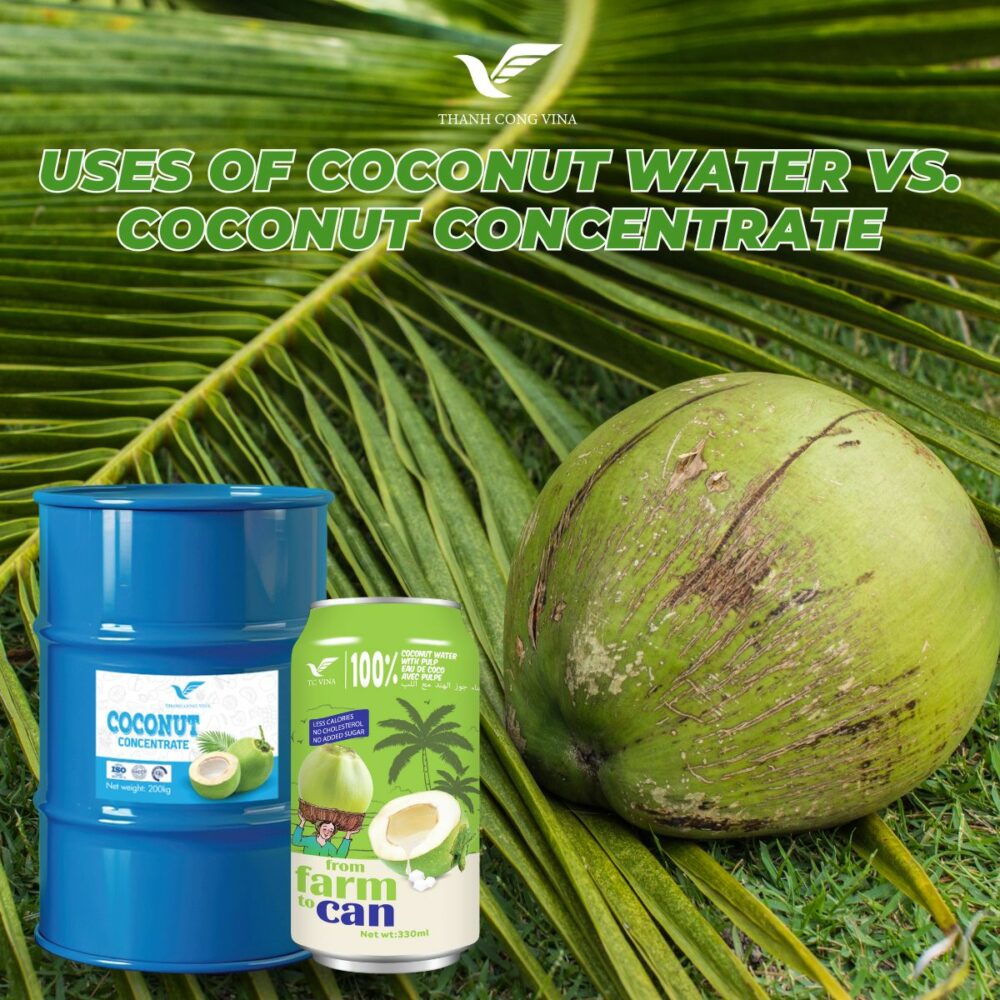
Uses of Coconut Water vs. Coconut Concentrate
Coconut Water Applications
-
Everyday hydration.
-
Post-workout recovery.
-
Natural alternative to sports drinks.
-
Ingredient in light smoothies and mocktails.
Coconut Concentrate Applications
-
Beverage manufacturing (diluted back into coconut water).
-
Ingredient in energy drinks and flavored beverages.
-
Culinary uses: sauces, marinades, desserts, and ice creams.
-
Nutritional supplements and health products.
6. Health Benefits
Benefits of Coconut Water
-
Hydration: Quickly replenishes fluids and electrolytes.
-
Low Calorie: Supports weight management.
-
Heart Health: Potassium may help regulate blood pressure.
-
Digestive Health: Natural enzymes may improve digestion.
Benefits of Coconut Concentrate
-
Nutrient Density: Offers concentrated electrolytes and minerals.
-
Versatility: Can be used in both food and drinks.
-
Long Shelf Life: Easier to transport and store compared to fresh water.
-
Commercial Advantage: Essential for global beverage brands like Thanh Cong Vina.
7. Coconut Concentrate vs. Coconut Water in Different Lifestyles
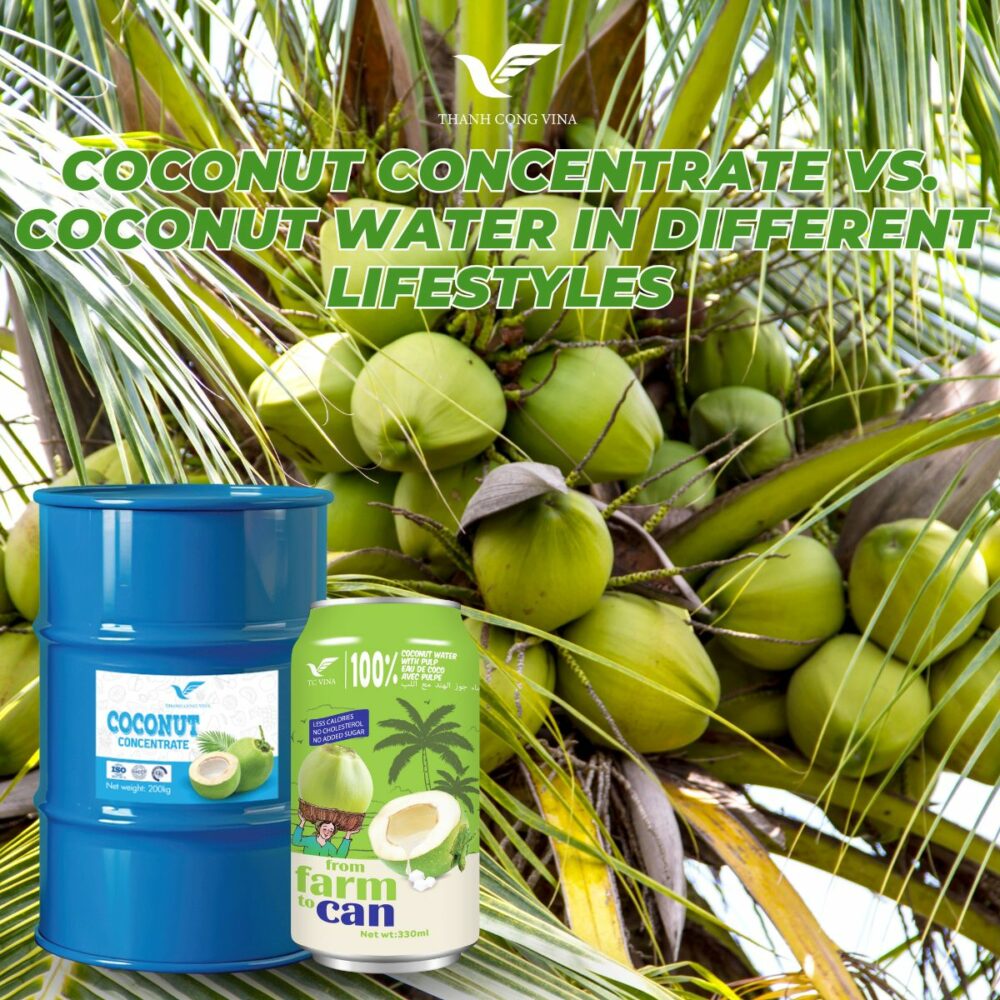
Coconut Concentrate vs. Coconut Water in Different Lifestyles
For Athletes and Fitness Enthusiasts
-
Coconut water: Best for immediate hydration post-exercise.
-
Coconut concentrate: Can be added to sports drinks for extra nutrition.
For Culinary Professionals
-
Coconut water: Works well in light recipes and beverages.
-
Coconut concentrate: Adds flavor depth in gourmet cooking and desserts.
For Everyday Consumers
-
Coconut water: Refreshing daily drink.
-
Coconut concentrate: More cost-effective for bulk use at home.
8. Market Trends and Consumer Preferences
Rising Popularity of Natural Beverages
As consumers seek healthier alternatives to sodas and energy drinks, coconut-based beverages are thriving. Both coconut water and coconut concentrate play a key role in this growth.
Coconut Concentrate as a Strategic Ingredient
Beverage companies increasingly rely on coconut concentrate to create consistent, scalable products. Brands like Thanh Cong Vina highlight quality and sustainability, ensuring their coconut-based products meet global demand.
Premiumization of Coconut Water
Cold-pressed and organic coconut water products are gaining popularity among health-conscious consumers willing to pay more for freshness and purity.
9. How to Choose: Coconut Concentrate or Coconut Water?
-
Choose coconut water if: You want immediate hydration, a low-calorie drink, or a natural sports drink.
-
Choose coconut concentrate if: You need a versatile ingredient, are buying in bulk, or are producing beverages commercially.
Both products serve unique purposes, and the choice ultimately depends on your lifestyle, preferences, and needs.
Conclusion
When comparing coconut concentrate vs. coconut water, it is clear that both have unique benefits. Coconut water shines as a natural hydrator, perfect for daily consumption and post-workout recovery. Coconut concentrate, on the other hand, offers flexibility, cost-effectiveness, and convenience for large-scale applications, from beverages to culinary creations.
For everyday consumers, coconut water delivers refreshing hydration. For businesses and culinary innovators, coconut concentrate is the ideal solution to harness the full potential of coconuts.
Ultimately, both products are not competitors but complementary players in the coconut industry. With trusted producers like Thanh Cong Vina, consumers worldwide can enjoy the pure, refreshing, and nutrient-rich qualities of coconuts in any form they choose.

